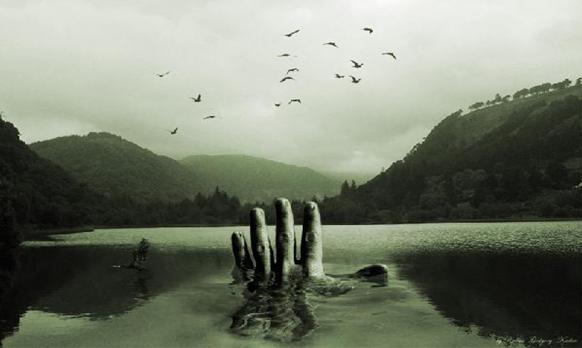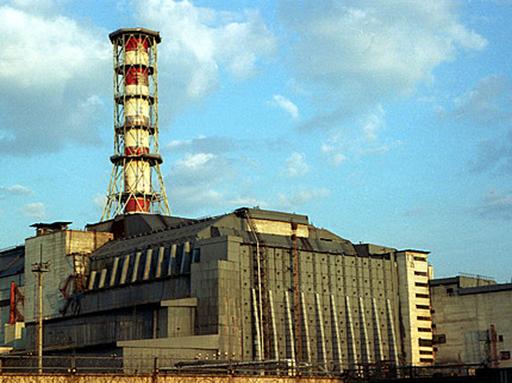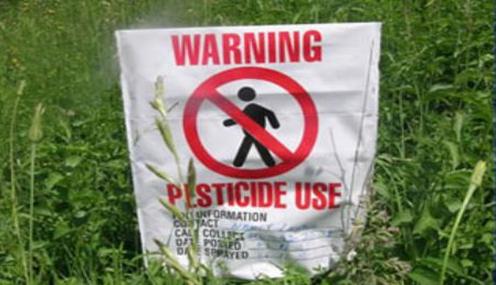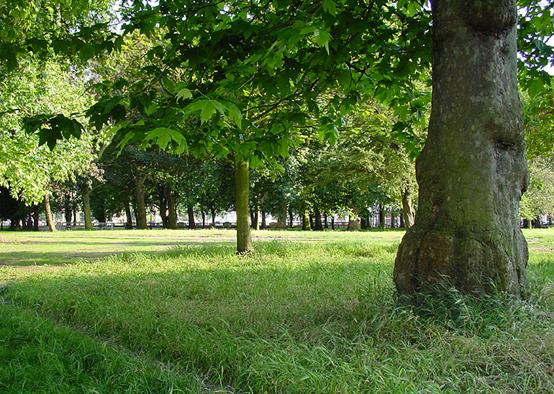UNIT2. ENVIRONMENTAL ISSUES IN GREAT BRITAIN
TEXT1. BEHIND THE IMAGE OF GREEN AND PLEASANT LAND
The poet William Blake wrote 200 years ago of "England's green and pleasant land". In spite of their mainly urban lives this image is still strong in British people's imagination. They love the countryside, cultivate gardens and watch hours of wildlife programmes on TV every week. Some of the first environmental organisations in the world started in Britain. The Royal Society for the Prevention of Cruelty to Animals (RSPCA) dates from 1824. The Royal Society for the Protection of Birds (RSPB) began life in 1889 and now, with over one million members, it is the largest voluntary wildlife-conservation body in Europe.

Recently the British have started to worry about losing their green and pleasant land under tarmac. In the mid-90s a bypass was built around the pretty country town of Newbury in Berkshire. This was a motorway which cut straight through some of the most beautiful countryside in the south-east of England and 10,000 trees had to be chopped down in the process. There were constant demonstrations by thousands of protesters during the building, and police had to protect the workers. There has been tremendous public opposition to major road-building projects ever since.
The government has sometimes acted to protect the environment. School geography books often have a section about the defeat of the London smog.
With coal fires in home and industry terrible photochemical smogs were common events 60 years ago. In fact there had been attempts to ban coal-burning in the city as far back as the 13th century. In 1952 particularly thick smog covered London for four days and killed about 2,000 people. Four years later Parliament passed the Clean Air Act. Coal was replaced by oil and gas and the problem was solved. The British are rather proud of this achievement.
Sadly Britain's overall environmental record does not fit the rather flattering self-image. Actually the British have been so careless about pollution that the country has been called the dirty man of Europe. On issue after issue Britain has fallen below the standards set by its neighbours – acid rain, climate change, toxic waste, recycling and sewage management.
Acid rain was one of the first cases of Britain exporting pollution and upsetting the neighbours. Acid rain is produced when sulphur dioxide (SO2) and nitrogen oxides (N20) from factories or cars mix with water. British industry and power generation, much of it old-fashioned and coal-burning, produced massive quantities of these pollutants which, because of the prevailing wind direction, were then carried over Scandinavia. Just one huge old power station at the village of Drax in Yorkshire gave off more sulphur dioxide than Sweden and Norway put together and those countries suffered serious damage to their lakes and forests as a result.
Not surprisingly acid rain also falls on parts of Britain. A recent study found Manchester to be the worst affected city in Europe – its buildings are being eaten away at an alarming rate. And 67 per cent of British forests have been damaged – the highest figure in Europe.

Climate change. Another problem related to power stations is the emission of carbon dioxide (CO2). This is the principal gas responsible for the greenhouse effect. While it is not immediately harmful to humans (we produce it ourselves as we breathe), it may have disastrous effects on our habitat in the long term. Carbon dioxide is given off whenever fossil fuels like coal, oil and gas are burnt. Britain has a particularly high level of dependence on fossil fuels for electricity generation. This is partly because Britain uses less nuclear energy but also because it gets so little energy from renewable sources such as hydroelectric and wind power. Unfortunately the main fossil fuel used in Britain is coal which is especially dirty in terms of emissions.
The British government went along to the United Nations Earth Summit in Rio de Janeiro in 1992 and supported the resolutions. But subsequently Britain opposed the one practical measure that might have reduced C02 emissions – a green tax on fossil fuel use. Actually the British record on emissions has improved considerably since then, but in a sense by accident: for economic reasons there has been a big switch from coal to natural gas from the North Sea resulting in a 6 per cent drop in C02. In the last 20 years industry and the power stations have become more efficient and C02 emissions have been going down as a result. But sadly these improvements are more than counter-balanced by another factor: road transport has grown enormously and taken over the role as the top producer of pollutants including C02.
Going nuclear. When the problems of acid rain and global warming became widely understood those in the nuclear industry were delighted. Nuclear power is the clean alternative, they said. Of course it is true that in many ways it is clean with none of the emissions of fossil fuel burning. If only it did not have two little drawbacks - the risk (better appreciated since Chernobyl) of catastrophic accidents and the insoluble problem of lethally dangerous radioactive waste.

The British experts were smug after Chernobyl: “It could not happen here,” they said, “as management is so much better”. But in reality there have been lots of problems in British nuclear power stations. In 1956, for example, there was a serious accident at what is now known as Sellafield, the centre of the UK nuclear industry. Then it was revealed that records at Dounreay power station in Scotland had been lost, so that no-one knew where all the nuclear waste was stored. In fact the situation was so bad at Dounreay that in 1998 the government decided to close it down.
Quite apart from accidents the normal process of waste disposal leads to all sorts of problems. High-level, very radioactive waste is stored in holes underground, but of course no-one wants it anywhere near them so it is almost impossible to find sites for it. Low-level waste used regularly to be thrown or pumped into the sea. In 1986 a parliamentary committee wrote: 'Sellafield is the largest recorded source of radioactive discharge in the world and as a result the Irish Sea is the most radioactive sea in the world." Understandably the Irish were not too happy about this and complained many times. It was not until 1997 that the government joined other countries in banning this system.
There now seems to be little future for nuclear power in Britain. A defining moment came when in the 1980s the government privatised the electricity generators. It had always been said that nuclear power was cheaper than its competitors. But when plans were made to sell the industry and real economic calculations had to be made, the truth was revealed. Taking into account the gigantic costs of closing down power stations safely at the end of their lives, nuclear power was too expensive. No one would buy the industry because it could not be run as a business.
Waste. Radioactive waste is not, of course, the only type of dangerous waste which is produced by Britain's consumer society. There are solvents, asbestos, heavy metals such as mercury and cadmium and hundreds of other substances. Most developed countries try to separate these things from harmless rubbish and to dispose of them carefully or recycle them. The British system has always been to throw everything into land fill sites and hope for the best. Of course sooner or later these toxic materials leak out of the land fill and into the surrounding environment. The network of almost 5,000 toxic sites has been described by experts as a time bomb.

Britain's record on recycling waste is poor. They recycle about 7 per cent compared with 30 per cent in Germany and nearer 80 per cent in some parts of Canada. No batteries and hardly any plastic are recycled here. Paper and glass are the only things commonly collected; even on paper recycling Britain is only 11th in the European league table.
Down on the farm. British farmers are highly efficient. Unfortunately that means that they use massive quantities of chemical pesticides and fertilisers. It seems perverse to say so but some of the blame for the situation in Britain belongs to the European Union (EU). The Common Agricultural Policy (CAP), which accounts for half of the EU's budget, encourages some very bad farming practices. Subsidies are given for increased mechanisation and more intensive methods. Prices for crops are guaranteed so farmers know that they will get those prices however much they produce. This has several effects. One is simply over-production but another is more complicated. Farmers used to have a variety of crops and animals so as to reduce risk if the price of one fell. Without that risk they now tend to concentrate on just one crop, for example, wheat or sugar beet. This monoculture has a number of damaging effects - with no change of crop the soil becomes exhausted and needs lots of chemicals to keep it productive.

Under EU rules individual governments can encourage organic farmers with subsidies. All EU governments do that except France, Ireland and Britain. The demand for organic food in Britain is high but most of it has to be imported from countries like Denmark.
Green politics. Given the situation in Britain, there is clearly a role for an environmentalist political party. There is a Green Party but it has so far remained a minority middle-class party without broad popular support and the voting system in parliamentary elections has prevented them from winning any seats.

Of the major parties the Liberal Democrats have for a long time been the greenest but they are always the third party with no realistic hope of power. The Conservatives have been very much the party of big business and resolutely anti-green. The main reason for Britain's poor environmental record in modern times is that from 1979 to 1997 there was a Conservative government which simply did not believe in ecology. Mrs. Thatcher had started her working life as a scientist and she thought that this gave her the authority to argue with environmental experts about everything from BSE (a disease affecting cattle) to climate change. The Labour Government promised a very different approach but since coming to power has disappointed environmentalists.
At grass-roots level, however, the situation is far more positive. The international organisation Greenpeace has over 200,000 members in Britain. Its policy is for high-profile publicity campaigns and it won a historic victory against Shell in 1995 when it prevented the dumping in the North Sea of an old oil platform the Brent Spar. Friends of the Earth is based on small local groups of activists; its membership in Britain is over 100,000 and growing steadily.

British attitudes have changed radically over the last few decades. Twenty years ago it was quite normal to make fun of Prince Charles for his views on organic gardening and farming and he was portrayed as an eccentric who talked to his flowers. Today people are sick of food scandals such as BSE in beef and dioxins in poultry and organic food is now big business. When the Prince recently spoke out against genetically modified (GM) foods he received lots of public support. Renewable energy such as wind power is becoming ever more popular. People are crying out for solutions to traffic jams and air pollution. Now almost everyone has woken up to the environmental crisis that has been created. It is surely only a matter of time before these feelings are translated into political action.
Ex.1. Answer the following questions:
- Who called England ‘green and pleasant land’?
- Can you prove that British people are nature lovers?
- When and where did the first environmental organizations start?
- Which is the largest voluntary wildlife-conservation organization in Europe?
- Why have the British started to worry about losing their ‘green and pleasant land’?
- Why were there constant demonstrations in Newbury in the mid-90s?
- What happened in London in 1952?
- When was the Clean Air Act adopted in Great Britain?
- What are the most urgent ecological problems in Great Britain nowadays?
- Why does the British industry export pollution and upset the neighbours?
- Which city is the most affected by acid rain in Europe?
- Did the British government support the resolutions of the United Nations Earth Summit in Rio de Janeiro in 1992?
- Why has the British record on emissions improved recently?
- What is the top producer of pollutants in Great Britain?
- What are the main troubles with British nuclear power stations?
- Why did British experts decide that nuclear power was too expensive and couldn’t be run as a business?
- What sorts of dangerous waste are produced by British consumer society?
- How effective is recycling in Great Britain?
- Why do British farmers use chemical pesticides and fertilizers?
- Has the Green Party won any seats in parliamentary elections?
- Which of the major parties has been the greenest?
- What environmental organizations are the most popular in Great Britain?
- Why have the British changed their attitude towards Prince Charles’s views on farming and protecting nature?
- How has general public opinion of ecological problems developed recently?
Ex.2. Give Russian equivalents for the following:
In spite of their mainly urban lives, to cultivate gardens, to watch hours of wildlife programmes on TV, environmental organizations, The Royal Society for the Prevention of Cruelty to Animals (RSPCA), The Royal Society for the Protection of Birds (RSPB), the largest voluntary wildlife-conservation body in Europe, to lose land under tarmac, trees had to be chopped down, constant demonstrations by thousands of protesters, tremendous public opposition to major road-building projects, Parliament passed the Clean Air Act, to be careless about pollution, acid rain, climate change, toxic waste, recycling and sewage management, sulphur dioxide, nitrogen oxide, to suffer serious damage, the emission of carbon dioxide, to be harmful to humans, to have disastrous effects, fossil fuel, a green tax on fossil fuel use, renewable sources, Britain's consumer society, a time bomb, chemical pesticides and fertilizers, the demand for organic food, genetically modified (GM) foods, to receive public support, everyone has woken up to the environmental crisis.